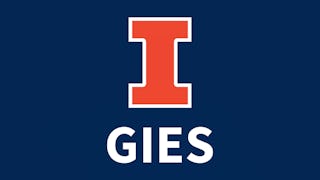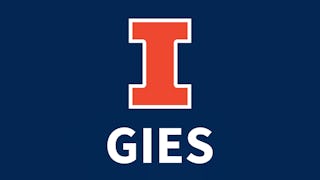In this course you will learn how to use key finance principles to understand and measure business success and to identify and promote true value creation. You will learn how to use accounting information to form key financial ratios to measure a company’s financial health and to manage a company's short-term and long-term liquidity needs. You will also learn how to use valuation techniques to make sound business investment and acquisition decisions. Finally, you will learn how to incorporate risk and uncertainty into investment decisions and how to evaluate the performance of existing investments.



Corporate Finance I: Measuring and Promoting Value Creation
This course is part of Financial Management Specialization


Instructors: Heitor Almeida
48,630 already enrolled
Included with 
(1,147 reviews)
What you'll learn
Forecast and manage a company's short- and long-term liquidity needs
Measure the contribution of a new project or acquisition to shareholder value
Incorporate risk into investment decisions using the appropriate discount rates
Evaluate the performance of a company or divisions of a company
Skills you'll gain
Details to know

Add to your LinkedIn profile
1 quiz, 17 assignments
See how employees at top companies are mastering in-demand skills

Build your subject-matter expertise
- Learn new concepts from industry experts
- Gain a foundational understanding of a subject or tool
- Develop job-relevant skills with hands-on projects
- Earn a shareable career certificate


Earn a career certificate
Add this credential to your LinkedIn profile, resume, or CV
Share it on social media and in your performance review

There are 6 modules in this course
In this module, you will become familiar with the course, your instructor, your classmates, and our learning environment. The orientation also helps you obtain the technical skills required for the course.
What's included
4 videos5 readings1 assignment1 discussion prompt
In Module 1, we will discuss the objectives of the corporation. We will introduce the concept of shareholder value and discuss the pros and cons of maximizing stock prices. We will then learn how to calculate financial ratios that measure concepts such as liquidity, leverage, and profitability. We will work with accounting statements and financial data from real world companies and learn how to use this data to measure the financial health of companies and make comparisons with competitors.
What's included
11 videos3 readings4 assignments
In Module 2, we will learn models that allow us to forecast and manage a company's short-term investments such as capital expenditures. We will forecast the future financial statements of a real world company and learn how to figure out how much external financing the company will need. We will then use real world examples to learn how short-term investments in working capital determine a company's need for short-term financing.
What's included
13 videos3 readings4 assignments1 peer review
In Module 3, we will learn tools that allow us to measure the contribution of a new investment to shareholder value. We will learn how to calculate the net present value (NPV) of an investment and how to use the NPV to make a decision on whether to make the investment or not. We will also learn to calculate the rate of return (IRR) on an investment project and how to properly use the IRR in investment decisions. Finally, we will learn how to incorporate real options into investment analysis to be able to make decisions about investments such as R&D (research and development).
What's included
13 videos3 readings1 quiz4 assignments
In Module 4, we will apply our investment valuation tools to understand when a merger between two companies creates shareholder value. We will learn to distinguish between good and bad reasons for companies to engage in mergers and acquisitions (M&A), and we will learn how to price an M&A deal. We will also learn the specific characteristics of leveraged buyouts (LBOs) and how they can create value for shareholders. We will then learn how to incorporate risk into investment valuation by changing discount rates. We will calculate the weighted-average cost of capital (WACC) for a real world company and learn how to use WACC to value investments and to measure the performance of the company or a division of the company.
What's included
14 videos3 readings4 assignments1 peer review
What's included
1 video2 readings
Instructors


Offered by
Explore more from Finance


University of Illinois Urbana-Champaign


Duke University


The University of Melbourne


University of Illinois Urbana-Champaign
Build toward a degree
Why people choose Coursera for their career




Learner reviews
1,147 reviews
- 5 stars
81.51%
- 4 stars
14.90%
- 3 stars
1.48%
- 2 stars
0.78%
- 1 star
1.30%
Showing 3 of 1147
Reviewed on May 20, 2021
This is a very interesting course to Corporate Finance. It provides you with the fundamentals for Project evaluation, Forecasting cash and financing needs, and Merges and Acquisitions.
Reviewed on Sep 10, 2017
Great course with a LOT of beneficial knowledge. However, it's a lot of information crammed into 4 weeks. In order to learn the material thoroughly expect to spend a lot of time on it!
Reviewed on Feb 27, 2021
Great course with good coverage of Corporate Finance. Course was properly planned with Quizes and Assignment in between to ensure that we understand the concept explained in the course.
New to Finance? Start here.

Open new doors with Coursera Plus
Unlimited access to 10,000+ world-class courses, hands-on projects, and job-ready certificate programs - all included in your subscription
Advance your career with an online degree
Earn a degree from world-class universities - 100% online
Join over 3,400 global companies that choose Coursera for Business
Upskill your employees to excel in the digital economy
Frequently asked questions
You will be eligible for a full refund until 2 weeks after your payment date. You cannot receive a refund once you’ve earned a Course Certificate, even if you complete the course within the 2-week refund period. View our full refund policy.
Yes! Coursera provides financial aid to learners who would like to complete a course but cannot afford the course fee. To apply for aid, select "Learn more and apply" in the Financial Aid section below the "Enroll" button. You'll be prompted to complete a simple application; no other paperwork is required.
Access to lectures and assignments depends on your type of enrollment. If you take a course in audit mode, you will be able to see most course materials for free. To access graded assignments and to earn a Certificate, you will need to purchase the Certificate experience, during or after your audit. If you don't see the audit option:
The course may not offer an audit option. You can try a Free Trial instead, or apply for Financial Aid.
The course may offer 'Full Course, No Certificate' instead. This option lets you see all course materials, submit required assessments, and get a final grade. This also means that you will not be able to purchase a Certificate experience.
More questions
Financial aid available,


